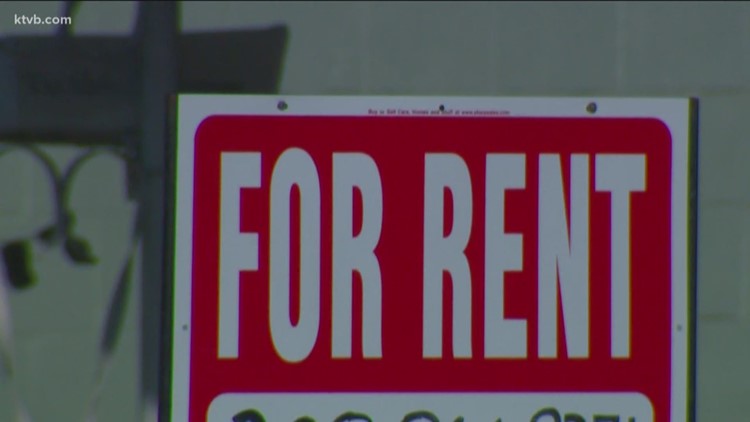BOISE, Idaho — A group of bills impacting renters is headed to the House of Representatives for a vote.
On Friday, the House Judiciary, Rules and Administration Committee approved three bills changing some of the regulations for landlords in Idaho.
Two of them, brought by Boise Democrats, were aimed at specifically protecting renters from the increasingly brutal rental market in the state’s fastest-growing areas.
The third came from Rep. Doug Ricks, R-Rexburg, giving residential tenants 72 hours to move their belongings out of their home after an eviction. It would also allow landlords to move the items themselves instead of hiring county sheriff’s deputies to do it for them, although a landlord could decide to have deputies on the site to keep the peace.
RENT NOTICES
House Minority Leader Ilana Rubel, D-Boise, proposed a bill she calls the Fair Warning Act, which would require landlords to give at least 45 days’ notice for increasing the rent more than 10% on longer-term leases, and at least 30 days’ notice for bumping the rent by over 10% on month-to-month leases, which allow landlords to change the terms of the lease or terminate it at any time.
In a Wednesday hearing, Rubel referred to this bill as a “market-friendly solution” because it would allow tenants more time to find a lower-cost rental after learning about a steep rent increase.
“Everyone I’ve talked to of the constituents in my district is absolutely, 100% in favor of this,” Rep. Ryan Kerby, R-New Plymouth, said before Friday’s vote.
Rep. Bryan Zollinger, R-Idaho Falls, said he would support sending the bill to the House floor but might vote against it there. He said he agrees with it in concept but has concerns about regulating contracts between landlords and tenants.
“It’s an important thing, it’s just how do you do it without burdening landlords more?” he said.
Rep. Heather Scott, R-Blanchard, cast the only “No” vote.
Watch more 'Growing Idaho':
See the latest growth and development news in our YouTube playlist:
SECURITY DEPOSITS
Rep. Melissa Wintrow, D-Boise, brought the second renter protection legislation aimed at helping renters get as much of their security deposit back as possible. This legislation would require the property owner to give the tenant an itemized list of what they will be charging for repair or cleaning above normal wear and tear on a property, in order to prevent landlords from overcharging and taking security deposits without cause.
Rep John Gannon, D-Boise, who made the motion to send the bill to the floor, said he has been involved in numerous landlord/tenant disputes as a lawyer.
“This bill, I think, really will make progress getting the parties together, helping the parties get along better and resolving disputes with everybody moving forward,” he said.
The only two “no” votes on Wintrow’s bill came from Zollinger and Rep. Julianne Young, R-Blackfoot.
EVICTIONS
Ricks’ bill related to evictions was the most heavily debated of the three, which passed out of committee on party lines. This legislation would give residential tenants 72 hours to leave the property and move their belongings and a full week for commercial tenants to leave a space.
Gannon, who made an unsuccessful motion to send it to the House’s amending order, said he wanted to change it to give residential tenants longer than three days if there are extenuating circumstances, such as if someone has a disability, is hospitalized or is dealing with some sort of life calamity. The bill does make allowance for commercial tenants to ask for more time.
“The three days is very arbitrary, and I think we need to have some kind of relief valve in there,” Gannon said.
Rep. Muffy Davis, D-Ketchum, who is in a wheelchair, agreed some flexibility could be important for people with disabilities, who often are of limited means and can’t move their belongings themselves.
“I agree this is good, but knowing many people who have disabilities and other challenges, they ain’t packing their bags until they get an actual judgment done,” Davis said.
The Republicans on the committee said that, by the time a judgment to evict someone has been entered, the landlord and tenant have probably been in court for a couple of months and the tenant knew it was coming.
“I think this overall is a good compromise for both sides,” Ricks said.
Ricks said he worried if the bill were to be amended to allow for extensions for residential tenants everyone would try to get one.
More from our partners at the Idaho Press: What's the result of Idaho's 2016 rape kit legislation? BSU researchers seek answers



